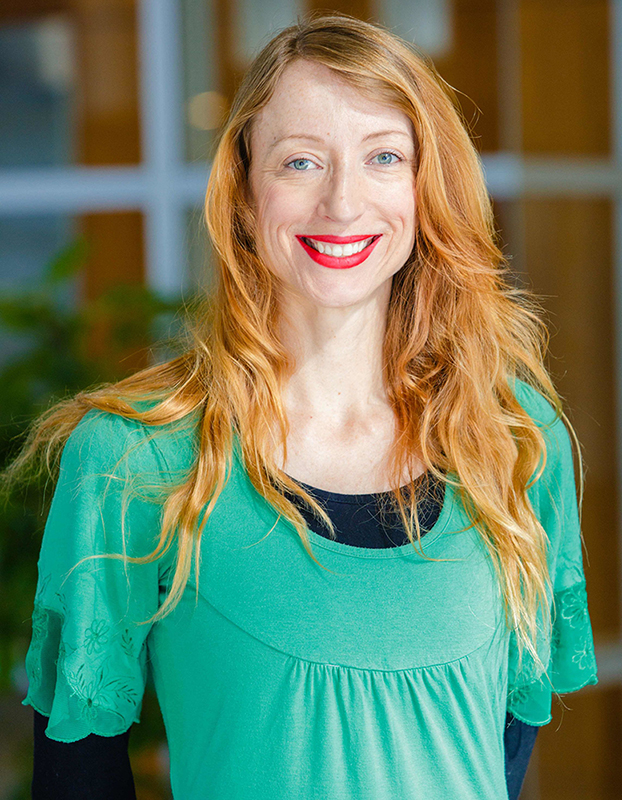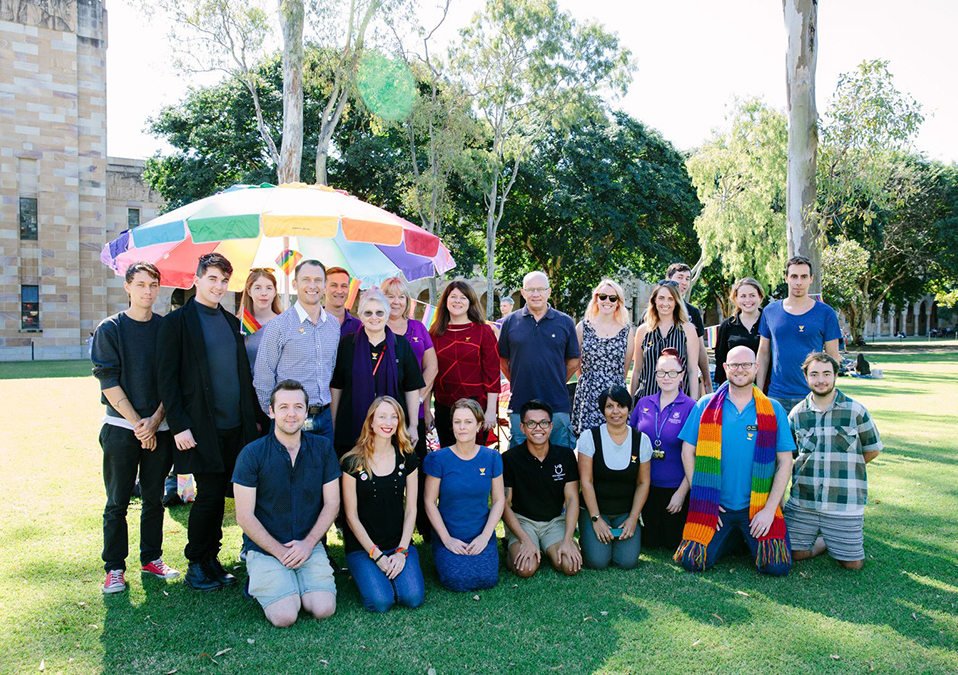 Alisa Pratt has a philosophy that works perfectly across so many topics.
Alisa Pratt has a philosophy that works perfectly across so many topics.
“When somebody or something is different you can either treat that with fear or with interest,” Ms Pratt says.
It’s a mindset the UQ Research Administration Officer has had good reason to consider.
For although her personal circumstances are not entirely unique, they are rare and different.
“Throughout my teens I identified as heterosexual, then I came out when I was 25 and identified as bisexual for around five years, then as I became settled with a partner, I saw myself primarily as a lesbian,” Ms Pratt reveals.
“To make things that little bit more complicated, around two-and-a-half years ago my partner began to transition from female to male.
“It was quite a hard journey at times, and while supporting my partner, I also had to juggle that with considering what it meant for me, how I saw myself, what that meant for my vision of the future.
“It was almost like trying to figure myself out all over again.
“I considered myself a lesbian, but then I had a husband.”
Ms Pratt courageously agreed to share her story ahead of Friday 17 May’s International Day Against Homophobia, Transphobia, Biphobia and Intersexphobia (IDAHOBIT).
Having lived through shifting generational attitudes, she is careful not to be complacent of how much is left to be achieved for true equality and freedom from discrimination.
A member of the UQ Ally Action Committee, Ms Pratt is active in driving greater inclusion and diversity within the University community.
“I went to high school in the 1990s and there was still a lot of discrimination in those days,” she recalls.
“The general voice was that anybody not heterosexual was ‘weird’ or ‘wrong’.
“People were being picked on mercilessly if they were gay. There were, and still are in some parts, some nasty attitudes out there.
“But seeing people in the media tell their own personal stories about sexuality…we’ve started to witness a change in cultural climate.”
For Ms Pratt to reveal her own personal circumstance is part of the evolution.
Previously coy about her sexuality and uncomfortable discussing it in groups, she is now a voice on behalf of others, and regularly uses social media to promote diversity.
“People have quite commonly assumed I’m straight, which places me in an odd position, because I don’t want to make my sexuality a focus at work, but it does help you feel part of a team and a complete person when you can speak openly,” she says.
“You want to be able to chat with your co-workers about what you did on the weekend or what’s going on in your life that is of importance to you.
“Without covering yourself in rainbow flags and shouting it out loud, it’s not something that’s immediately easy to broach and feel comfortable about.
“However, it’s now at the point where most of my immediate colleagues know my circumstance and to their credit it’s not something that bothers them one way or another.”

UQ’s commitment to inclusion and diversity is a big reason Ms Pratt has worked for the University for almost eight years.
After commencing work at St Lucia in 2012, she also undertook a Graduate Certificate in Science Communication at UQ in 2014, building on an impressive background in health science studies.
“I wouldn’t say UQ’s diversity policy is the deciding factor in my career, but it is something you notice and makes you feel more settled,” Ms Pratt says.
“I do get the feeling I can be who I am. I don’t have to hide things or make up stories.
“Being a part of the UQ Ally Network has certainly given me confidence and I probably wouldn’t have realised how many allies are out there if I hadn’t taken that step.
“I have friends who have had a much tougher journey than I have. Some have been kicked out of home or disowned. I have friends who have been ‘outed’ at work by their boss without their consent.
“UQ has been proactive with its policies and there are steps in place to reprimand those who cross the line, but not every workplace is like that.”



